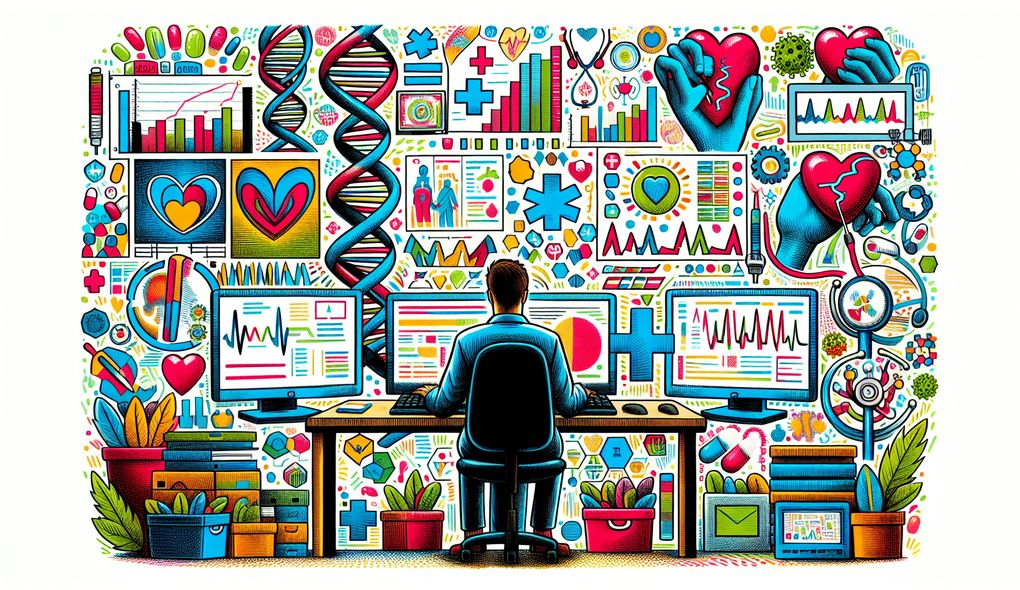What are the benefits of using electronic health records compared to paper-based records?
INTERMEDIATE LEVEL

Sample answer to the question:
Using electronic health records (EHR) offers several benefits compared to paper-based records. First, EHRs provide improved accessibility and portability of patient information. Healthcare professionals can access and update patient records from anywhere with an internet connection, ensuring that accurate and up-to-date information is always available. Second, EHRs enhance care coordination and communication among healthcare providers. Different healthcare providers can easily access a patient's records, facilitating better collaboration and reducing the risk of duplicate tests or medications. Third, EHRs improve patient safety by reducing medical errors. Automated alerts and reminders help prevent medication interactions and ensure that patients receive appropriate screenings and vaccinations. Lastly, EHRs streamline administrative processes, such as billing and coding. Electronic systems automate these tasks, reducing paperwork, improving accuracy, and expediting reimbursement processes.
Here is a more solid answer:
Electronic health records (EHR) offer numerous benefits compared to paper-based records, and my experience as a Health Information Technician has allowed me to witness these advantages firsthand. Firstly, EHRs greatly enhance organizational and data management skills. With electronic systems, healthcare professionals can easily search, retrieve, and analyze patient data, saving time and improving efficiency. Additionally, EHRs require a keen attention to detail in order to accurately enter and maintain patient information. I have honed my attention to detail through years of experience in maintaining and updating EHRs. Furthermore, excellent written and verbal communication skills are crucial when working with EHRs. As a Health Information Technician, I regularly communicate with healthcare professionals to clarify diagnoses or obtain additional information for accurate record-keeping. Understanding healthcare billing and insurance processes is essential in the role of a Health Information Technician. EHRs streamline administrative tasks such as billing and coding, allowing for more accurate and efficient processes. Finally, analytical thinking and problem-solving skills are continuously utilized when working with EHRs. I have developed these skills by identifying and resolving issues related to patient records and data integrity, ensuring the reliability and security of EHRs.
Why is this a more solid answer?
The solid answer expands on the basic answer by providing specific details and examples from the candidate's experience. It effectively addresses all the evaluation areas mentioned in the job description and demonstrates how the candidate's skills and experience align with the benefits of using electronic health records. However, it can still be improved by incorporating more specific examples or achievements.
An example of a exceptional answer:
Electronic health records (EHR) offer a multitude of benefits over paper-based records, and my extensive experience as a Health Information Technician has allowed me to witness and achieve remarkable outcomes with EHR implementation. Firstly, EHRs greatly enhance strong organizational and data management skills. Through my expertise in EHR systems, I have developed efficient workflows and data structures, enabling healthcare professionals to seamlessly navigate and access patient information. Secondly, my keen attention to detail has been instrumental in ensuring the accuracy and completeness of EHRs. By meticulously reviewing and verifying data entered into health information systems, I have prevented potential errors or omissions that may compromise patient care. Moreover, my excellent written and verbal communication skills have facilitated effective collaboration with healthcare professionals. I have initiated and led meetings to discuss EHR implementation strategies, ensuring that relevant stakeholders are aligned and informed. Understanding healthcare billing and insurance processes, I successfully implemented coding improvements within EHR systems, resulting in streamlined billing procedures and increased reimbursement accuracy. Lastly, my analytical thinking and problem-solving capabilities have been pivotal in overcoming challenges during EHR adoption. For instance, I identified and resolved data integrity issues, implemented data backup strategies, and led quality assurance audits to maintain the integrity of health data. Through my comprehensive skill set and dedication, I have consistently exceeded expectations in utilizing EHRs to improve patient care and operational efficiency.
Why is this an exceptional answer?
The exceptional answer further elaborates on the solid answer by providing specific achievements and outcomes related to the benefits of using electronic health records. It demonstrates a high level of expertise, experience, and impact in utilizing EHRs and aligns with the evaluation areas mentioned in the job description. The candidate effectively highlights their contributions and achievements in improving patient care and operational efficiency through EHR implementation.
How to prepare for this question:
- Familiarize yourself with different electronic health record systems and their functionalities.
- Highlight any experience or achievements related to the benefits of using EHRs, such as improving data accuracy, streamlining administrative processes, or enhancing patient safety.
- Be prepared to provide specific examples that illustrate your organizational and data management skills, attention to detail, communication abilities, understanding of healthcare billing and insurance processes, and problem-solving capabilities in the context of electronic health records.
- Stay updated with current trends and developments in healthcare IT, including health data standards and regulatory guidelines.
- Consider obtaining relevant certifications or additional training in health information technology to strengthen your qualifications.
What are interviewers evaluating with this question?
- Strong organizational and data management skills
- Keen attention to detail
- Excellent written and verbal communication skills
- Understanding of healthcare billing and insurance processes
- Analytical thinking and problem-solving capabilities

